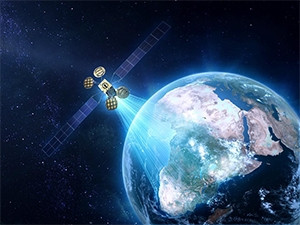
Facebook will proceed with launching satellites to provide Internet to less connected areas of the world, starting next year in Africa.
This is despite reports in June, saying Facebook was ditching its satellite plans. Facebook had reportedly planned to spend as much as $1 billion on the project, but decided not to go through with it because costs were escalating above budget.
However, Facebook CEO Mark Zuckerberg announced on his Facebook wall late yesterday: "As part of our Internet.org efforts to connect the world, we're partnering with Eutelsat to launch a satellite into orbit that will connect millions of people.
"As part of our collaboration with Eutelsat, a new satellite called AMOS-6 is going to provide Internet coverage to large parts of Sub-Saharan Africa. The AMOS-6 satellite is under construction now and will launch in 2016 into a geostationary orbit that will cover large parts of West, East and Southern Africa. We're going to work with local partners across these regions to help communities begin accessing Internet services provided through satellite."
Facebook renamed the Internet.org app to Free Basics by Facebook last month. The app and Web site are available in 19 countries, and enable access to select "basic services", such as Wikipedia, health and employment information free of data charges.
Arthur Goldstuck, MD of World Wide Worx, says the news is very exciting as it will bring additional connectivity options to places that previously had very little.
"Of course, providing these satellites is in the interests of Facebook. The company has seen the massive appetite for its services in these regions and it therefore makes sense to fill connectivity gaps in whatever ways it can. Facebook is the most visited log-in service on the continent, so everyone wins."
"It is a case of you can't ever have too much Internet," says Brian Neilson, director of BMI-TechKnowledge.
"The initiative is going to accelerate Internet usage in Africa and it will promote Facebook as a major gateway to the Internet," says Neilson, who doubts this will become a major problem. "The youth in Africa are more informed than we give them credit for; they will be able to distinguish Facebook as a content provider.
"It will be good for consumers and Facebook but not the middle players on the ground; the small Internet service providers in these regions."
Growth in the number of people with access to the Internet is slowing, and more than half of the world's population is still offline. This was reported by the United Nations Broadband Commission last month.
Facebook has 31.5 million users in South Africa, Nigeria and Kenya, statistics released by the social network showed last month, with the majority using mobile devices to access their profiles.
Facebook said its active user population in Africa grew 20% to 120 million in June, from 100 million in September last year. A large portion of these users were in North Africa.
In June this year, Cell C and Facebook partnered to bring free Internet access to consumers through the launch of Internet.org in SA.
In June, Facebook opened its first office in Africa, located at Melrose Arch, Johannesburg.
Share